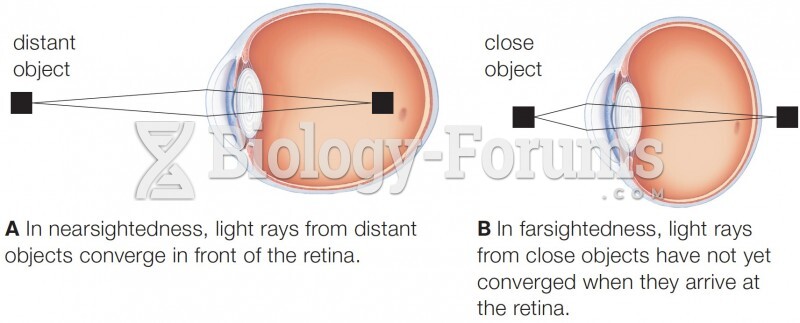Answer to Question 1
Responses should consider:
1. Loss of trust. Most couples need to trust that their partners are faithful, honest in expressing feelings, will not inflict emotional or physical pain, and are not withholding important information that might negatively affect the relationship. Sexual problems such as desire disorders, arousal difficulties, among others, may sometimes be linked to the lack or loss of trust in a relationship. When this basic trust is lost, the overall relationship will suffer.
2. Poor communication. Effective communication is a cornerstone of a good relationship, and good sexual communication is usually the foundation of a good sexual relationship. The ability to express sexual feelings, sexual desires, or insecurities about sex is crucial to establishing and maintaining a sexually satisfying relationship.
3. Anger and resentment. Strong negative emotional reactions, especially anger and resentment, work directly against sexual responding. If one is feeling angry or resentful toward a partner, responding sexually is going to be problematic. One barrier is the specific physiological responses of the autonomic nervous system, which are incompatible with sexual arousal. The other is the psychological distance and loss of desire for intimacy with the partner that accompanies the anger.
4. Conflicting sexual expectations. When two people enter into a sexually intimate relationship, they are sure to have some differing expectations about sex that will have to be negotiated and reconciled. If differing expectations are not reconciled, they can lead to a serious imbalance in the relationship and to potential sexual problems. When both partners are willing and able to communicate and discuss differences in expectations, chances are good that they can work them out.
5. Lack of respect. Lack of respect in an intimate relationship will invariably undermine sexual feelings, desire and responses. Two related types of respect are fundamental to successful and satisfying relationships: self-respect and mutual respect. A lack of self-respect, and the low self-esteem that invariably accompanies it, usually cause one or both partners to feel unworthy of experiencing sexual pleasure and undeserving of sexual pleasure. Mutual respect is equally important, in that each partner needs to feel that his/her wishes, ideas, attitudes, desires, abilities, and unique characteristics as a person are honored and valued by the other. When mutual respect is absent, the foundation for successful and satisfying sexual interactions crumbles away.
6. Loss of love. In an intimate relationship, sexual satisfaction and functioning often falter. Of all the factors in intimate relationships that can influence sexual functioning, love is possibly the most important of all. Sex combined with love is very different from sex without love. People make very clear distinctions between making love and having sex.
Answer to Question 2
Responses should consider:
Hypoactive sexual desire is a persistently low level or lack of sexual fantasies or desire for sexual activity. It's also known as inhibited sexual desire. This applies to individuals or couples who do not think about sex very much, who do not feel desirous of sexual activities very often, and who find this to be a problem in their lives and relationships.
- Causes
- For low desire that is primary, global, and total, underlying causes such as hormonal imbalances or neurological pathology must be considered.
- For desire difficulties that are secondary, situational, and partial, nonphysical factors such as psychological, relationship, or cultural must be considered.
- Among the most commonly suggested nonphysical causes are anxiety over relationship and other sexual issues, depression, fear (of pregnancy, STIs, or pain), and past sexual victimization.
- Treatment Strategies
- One treatment strategy is cognitive behavioral therapy, which is designed to:
1. assist an individual or couple in identifying and exploring irrational, fault, and self-defeating beliefs and attitudes that underlie sexual difficulties
2. develop strategies to discard those ineffective cognitions and replace them with new, more accurate, and more constructive thought processes
3. gradually eliminate undesirable behaviors that were based on the old ways of thinking and replace them with new and effective actions stemming from the new belief systems
- Another treatment strategy is sensate focus, as it can reduce anxiety about intercourse and fears about performance, and may reawaken sensuality for the couple and spark new feelings.







